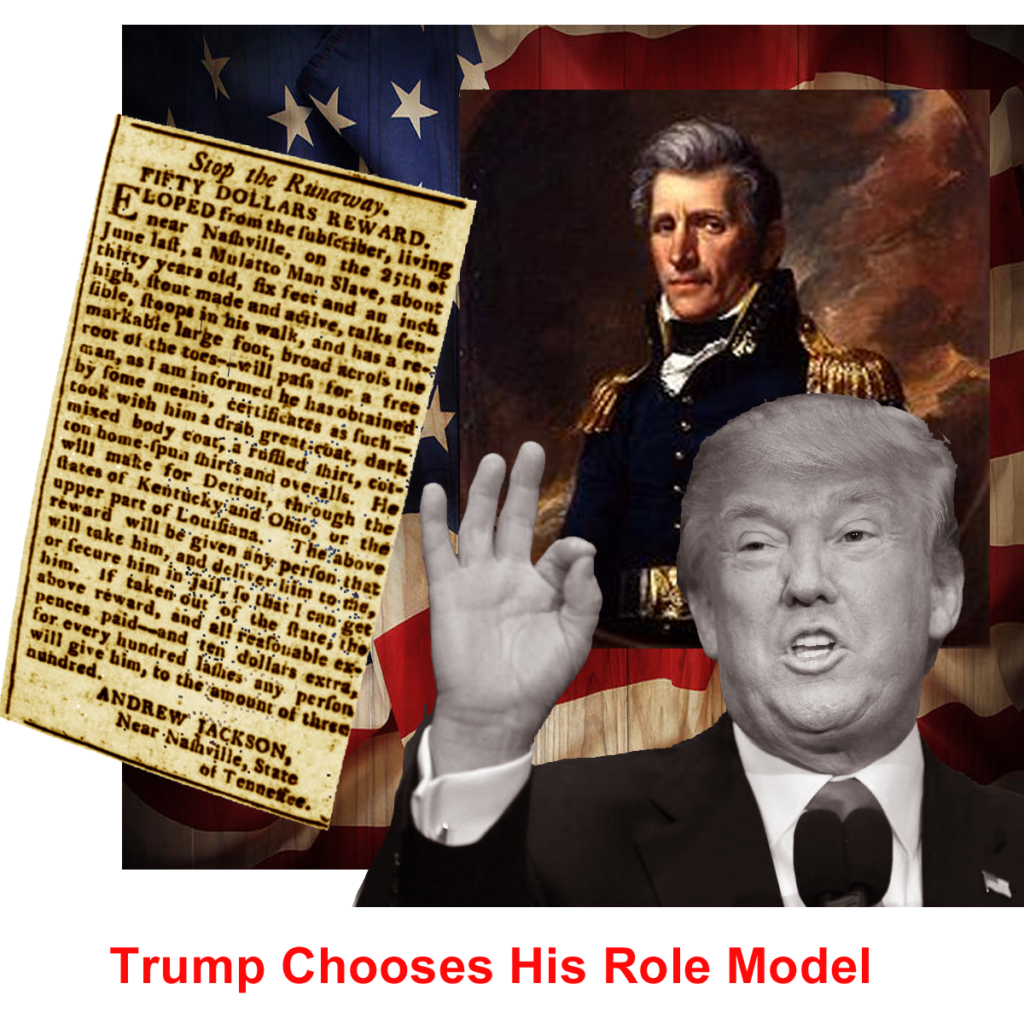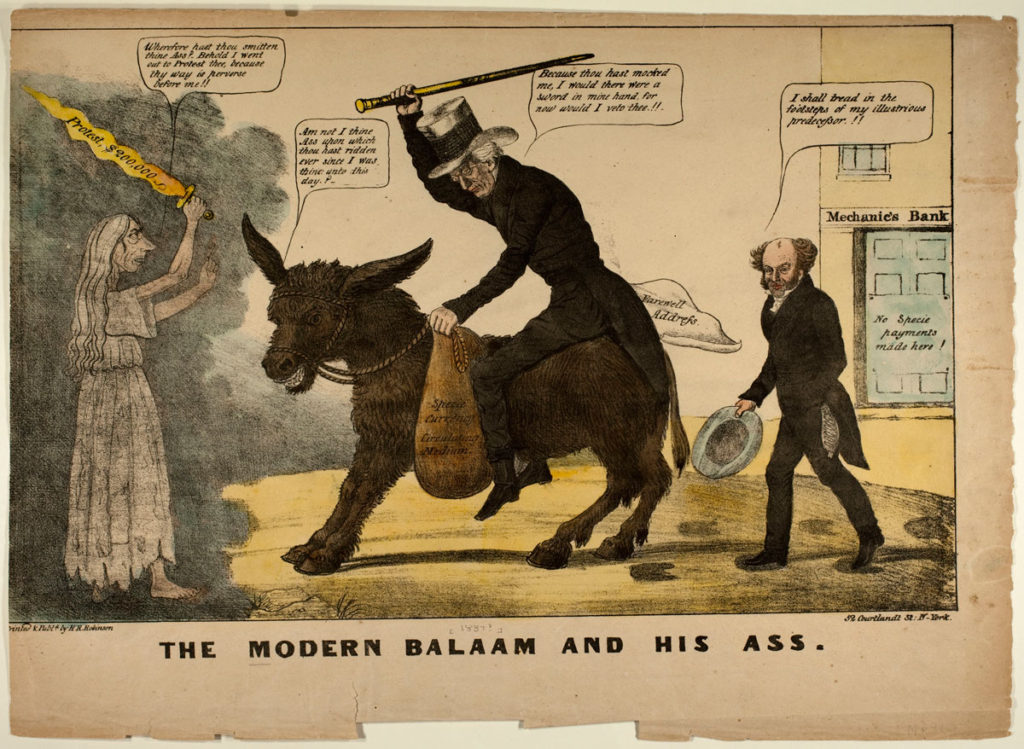If you want to better understand this president, you should read about a campaign almost 200 years old. Mr. Trump has dedicated his Presidency to Jackson’s Memory.
 In 1828, Andrew Jackson became the first president of the United States who wasn’t a founding father or son of a founding father. Jackson rode a wave of anti-Washington sentiment all the way to the White House.
In 1828, Andrew Jackson became the first president of the United States who wasn’t a founding father or son of a founding father. Jackson rode a wave of anti-Washington sentiment all the way to the White House.
Peter Schorsch, FLORIDA POLITICS (with additions)
In that election, Jackson won a plurality of the popular vote, but a deal cut between John Quincy Adams and Speaker of the House Henry Clay put Adams in the White House. Adams then repaid Clay by appointing him Secretary of State.
Although Jackson wouldn’t be sworn in for four more years, his campaign started that day. It became a four-year crusade against what he and his supporters called “a corrupt bargain” that stunted the people’s will. The ’28 campaign was particularly nasty. Adams did everything from challenge Jackson’s literacy to calling him a “jackass.” Jackson responded famously by saying, “It’s a damn poor mind indeed that can’t think of at least two ways to spell any word.” Jackson also changed his campaign mascot to a donkey in a show of defiance still used today by the modern Democratic Party.
Less than 50 years after the Revolutionary War ended, Jackson became the first candidate to spread an anti-Washington message. Gone were the young republic’s elder statesman revered even when they made mistakes. Now Washington’s second-generation power elites desperately tried to hold that power by nominating one of their own: John Quincy Adams, Harvard professor, U.S. senator, ambassador to England, secretary of state, and son of President John Adams.
Jackson returned four years later to win redemption, soundly defeating Adams and becoming the nation’s seventh  president (1829-1837). As leader of the new Democratic Party Jackson fought for states’ rights, extension into the new western territories ending the Bank of the United States. His most disgusting act was genocide, the forced relocation of Native American tribes living east of the Mississippi.
president (1829-1837). As leader of the new Democratic Party Jackson fought for states’ rights, extension into the new western territories ending the Bank of the United States. His most disgusting act was genocide, the forced relocation of Native American tribes living east of the Mississippi.
Every attack Adams and the elite threw at Jackson made him stronger. Even if the attacks were real and legitimate, the American electorate no longer trusted the messengers. Jackson won with 56 percent of the popular vote, almost double his 1824 total, and beat Adams by nearly 100 votes in the Electoral College.
They say “past is prologue” and if you look at this year’s presidential race, it’s easy to see the connections to the modern-day electorate. Americans have spent most of 40 years watching the decline of trust in the politicians who run this country. The perception is the elites in both parties have put their own will before that of the American people time after time after time, and have hoped no one would notice. Maybe they hoped just a state of apathy would allow them to continue in power.
Talk of the GOP establishment cutting deals for VP spots and Cabinet posts to consolidate the field against Trump strengthens him as well. It’s too late to stop him, and most Republican voters view such a deal as the “corrupt bargain” of 1824 that sealed John Quincy Adams’ fate.
Trump isn’t the war hero Jackson was, but he has tapped into the same disdain for the power elite that propelled Jackson to his 1828 electoral landslide. If things continue this way, I have a feeling Trump may win a similar victory in November.
The only question is, what does a Trump presidency do to America?